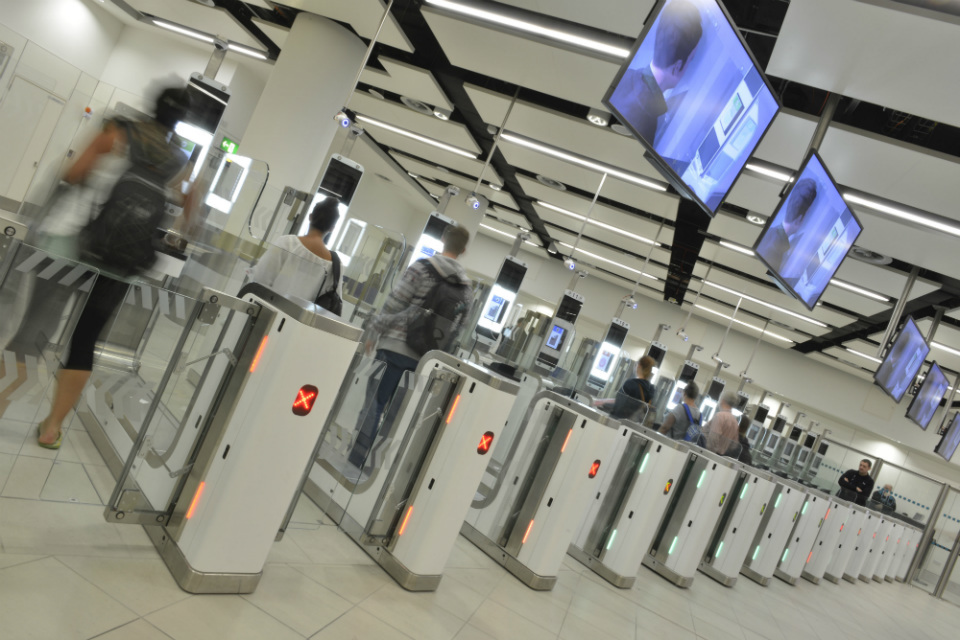Committee report expressed doubt that the new system will meet its current target – which is already four years later than originally scheduled
Hundreds of thousands of passport applicants were “let down” by outdated IT systems and poor understanding of processes in HM Passport Office, MPs have said.
The Public Accounts Committee also expressed doubt that HMPO’s new digital system will be successfully delivered to its current timescale – which is already four years behind schedule.
A new report from the committee reveals that the office had predicted and prepared for a surge in passport applications as Covid-19 travel restrictions ended, but its incomplete IT systems and a lack of understanding about how applications move through the organisation caused “misery” for applicants.
Between January and September 2022, around 95% of applicants received their passports within the agency’s 10-week target but 360,000 customers had to wait longer.
HMPO blamed higher-than-anticipated demand in May 2022 for the delays, but PAC said the total demand last year was lower than it forecasted.
The committee said one of the key causes of the issues was the Passport Office’s work-in-progress digital system not being able to handle the surge in demand, which led to it moving 134,000 applications to its less efficient, paper-based system.
Completion of the digital system has already been delayed by up to four years, from the end of 2021-22 to 2025-26. But MPs said they were not confident the latest date for the programme, which has been red-rated by the Infrastructure and Projects Authority, would be met, in a report published last week.
Committee member Peter Grant said: “Passport Office staff did the best they could but they were fighting a losing battle against antiquated processes and poor planning. These failings resulted in misery for 360,000 people whose passports experienced severe delays.”
The delays led to customers not being able to attend family emergencies, not being able to gain employment, losing holidays, and not being able to prove their identities, PAC said.
Fellow committee member Nick Smith said he was “concerned that a failure to upgrade their clunky system may result in similar scenes this year”.
The Passport Office is expecting a similar level of demand this year but will also have to contend with contend with strikes over pay which began this week.
The agency was also criticised for failing to understand its own processes.
For example, when HMPO moved 134,000 applications from its digital system to its legacy paper-based system, these should have been moved to the front of queue for processing, but this did not happen. Instead, they were treated as new cases, with their 10-week target reset to zero.
It took two-to-three months for HMPO to discover the problem, and only after customers raised it with officials. The committee said the agency “took far too long to identify and fix the issues”.
HMPO also did not plan for the number of applications that needed to transfer to the paper-based system and staff were not sufficiently trained to handle the differences between the two systems, the report said. The Passport Office said it has now trained 1,000 staff to be able to use both systems.
PAC asked said the agency must address these “weaknesses in management information” to ensure it has a “real-time, end-to-end view that allows it to identify and resolve issues quickly and efficiently”.
The committee said the delays were exacerbated by the performance of contractors, which were includes Sopra Steria supporting the opening and scanning paper applications and other documents, and Teleperformance’s handling of a customer service phoneline.
Both contractors failed to meet their targets for several months, with Teleperformance given a six-figure fine as a result.
HMPO accepted that some of the issues with contractors, especially at the end of the process, were its fault, as it had not adequately prepared them for the expected volumes of work, the report said.
Customers ‘not put first’
MPs also raised concern at HMPO’s “lack of curiosity about the consequences of these delays for its customers”. The agency was unable to say, for example, how many people were forced to cancel their travel because of their passports being delayed, and had not done any work to find this out, the report said.
The Passport Office “has not put the customer’s perspective at the centre of its decision-making”, PAC said.
Grant said it is “astonishing that even today the Passport Office hasn’t attempted to find out how many of these people had to cancel holidays or were unable to travel for family weddings or other big occasions”.
“This has given the committee real concern as to whether the Passport Office really understands how much it needs to improve if the public are to get the level of service they’re entitled to expect,” he added.
The committee also said the agency’s handling of customer complaints during the application process was poor. The Home Office received 11,400 letters from MPs about their constituents’ passport applications, as many customers gave up trying to contact HMPO directly.
The Passport Office told the committee it “recognised that customers who complained were passed between too many staff in different parts of HMPO”. It said it is establishing a new “resolution hub” to improve this and resolve cases on the first try. However, it does not expect this to be ready in time for the next anticipated surge in demand in the coming months. It has also hired a second contractor to support Telepeformance.
‘More ambition needed’
PAC also criticised the Passport Office for “lacking ambition” to improve its performance. HMPO has said it plans to rely on surge teams to manage spikes in demand by moving people flexibly between roles.
But MPs said this means it will be “focused on coping with demand, rather than being bold in trying to manage it”.
“While it is important that HMPO ensure they have the correct processes in place, we are increasingly concerned that this focus has distracted them from developing a clear strategy for the timely delivery of passports moving forward, and what they will prioritise when there are surges in demand,” the report said.
The committee has asked the agency to set out how it will better manage demand for passports in future and what outcomes it will use to measure its performance.
A Home Office spokesperson said: “2022 was a record-breaking year, with HM Passport office issuing 8.4 million passports. We worked hard to meet this unprecedented demand and make improvements, hiring hundreds more staff to ensure customers could get their passports in time for travel. This action has also meant we have already issued a further record 2.7 million passports so far this year, well within the required standard, with over 99.7% of standard applications being processed within 10 weeks and the majority of those delivered to customers well under this timescale, including 94.5% within three weeks. We remain committed to ensuring that we provide the best possible service to our customers.”



